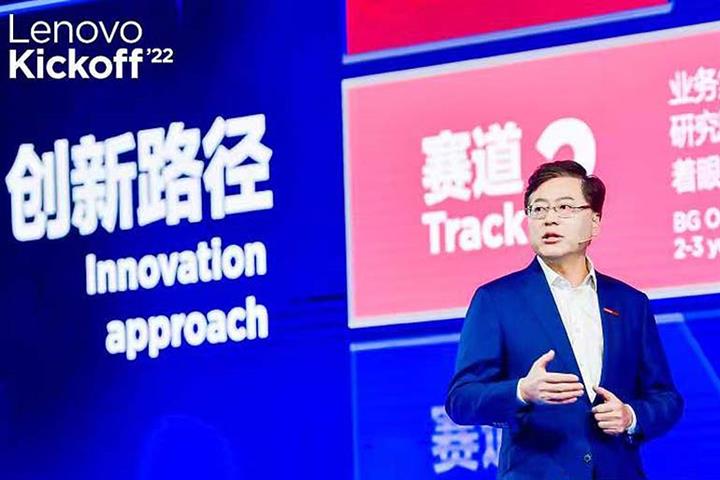 Lenovo to Spend More Than USD15.7 Billion on R&D Over Next Five Years, CEO Says
Lenovo to Spend More Than USD15.7 Billion on R&D Over Next Five Years, CEO Says(Yicai Global) April 6 -- Lenovo Group plans to invest more than CNY100 billion (USD15.7 billion) in research and development over the coming five years, according to the chief executive of the world’s largest maker of personal computers.
Lenovo will focus the spending in various fields, Yang Yuanqing said at the firm’s annual kick-off event today. The company will double its R&D investment by the fiscal year 2024 and hire 12,000 R&D staff over the period, he added.
The Beijing-based company increased spending on research and development to USD1.45 billion in fiscal 2021 from USD1.34 billion in fiscal 2020, according to publicly available information.
In the next one to two years, the company will concentrate on innovating existing products, applications, and business models, and wait for the next two to three years to begin investing in new technologies such as virtual reality, edge computing, and cloud computing services, he said.
After the third year, the company will dedicate itself to innovative breakthroughs including new generations of artificial intelligence and communication protocols, Yang added.
Through R&D investment, Lenovo will upgrade itself to a high-tech-driven solutions provider from a hardware supplier, so as to become a highly profitable firm, he noted.
Revenue is expected to have soared to a record high of USD70 billion in the fiscal year ended March 31, Yang said. In the first three quarters of fiscal 2022, revenue jumped 22 percent to USD45.1 billion from a year earlier, while net profit soared 76 percent to USD918 million, according to Lenovo's third-quarter earnings report.
Over the past year, both revenue and net profit at Lenovo’s PC business logged historic highs, with the profit margin widening for 16 consecutive quarters. Its smartphone business made profit for seven quarters in a row, Yang added, noting that its Infrastructure Solutions Group also turned a profit, and its newly-established Solutions and Services Group growing exponentially.
Editor: Dou Shicong, Futura Costaglione